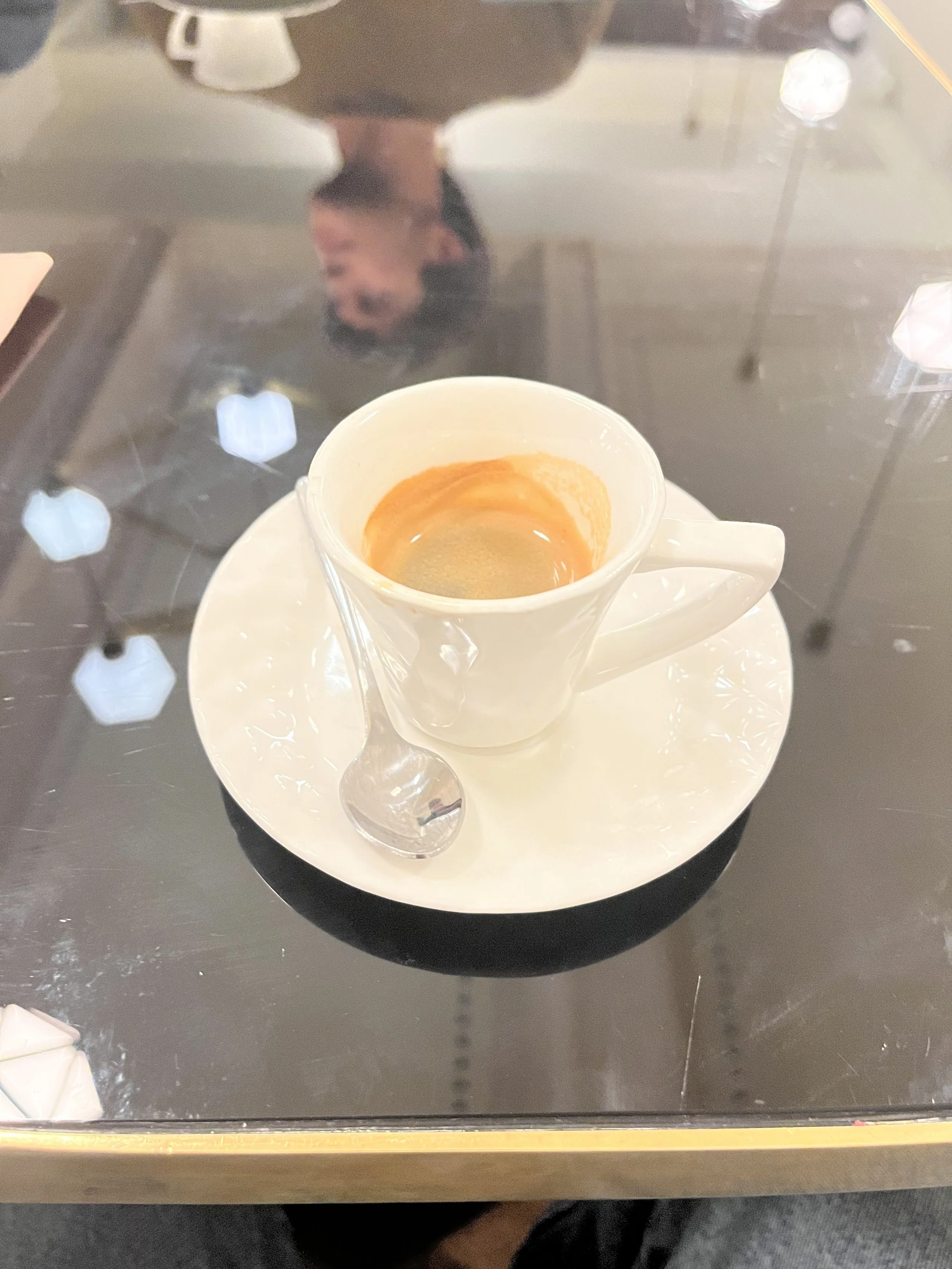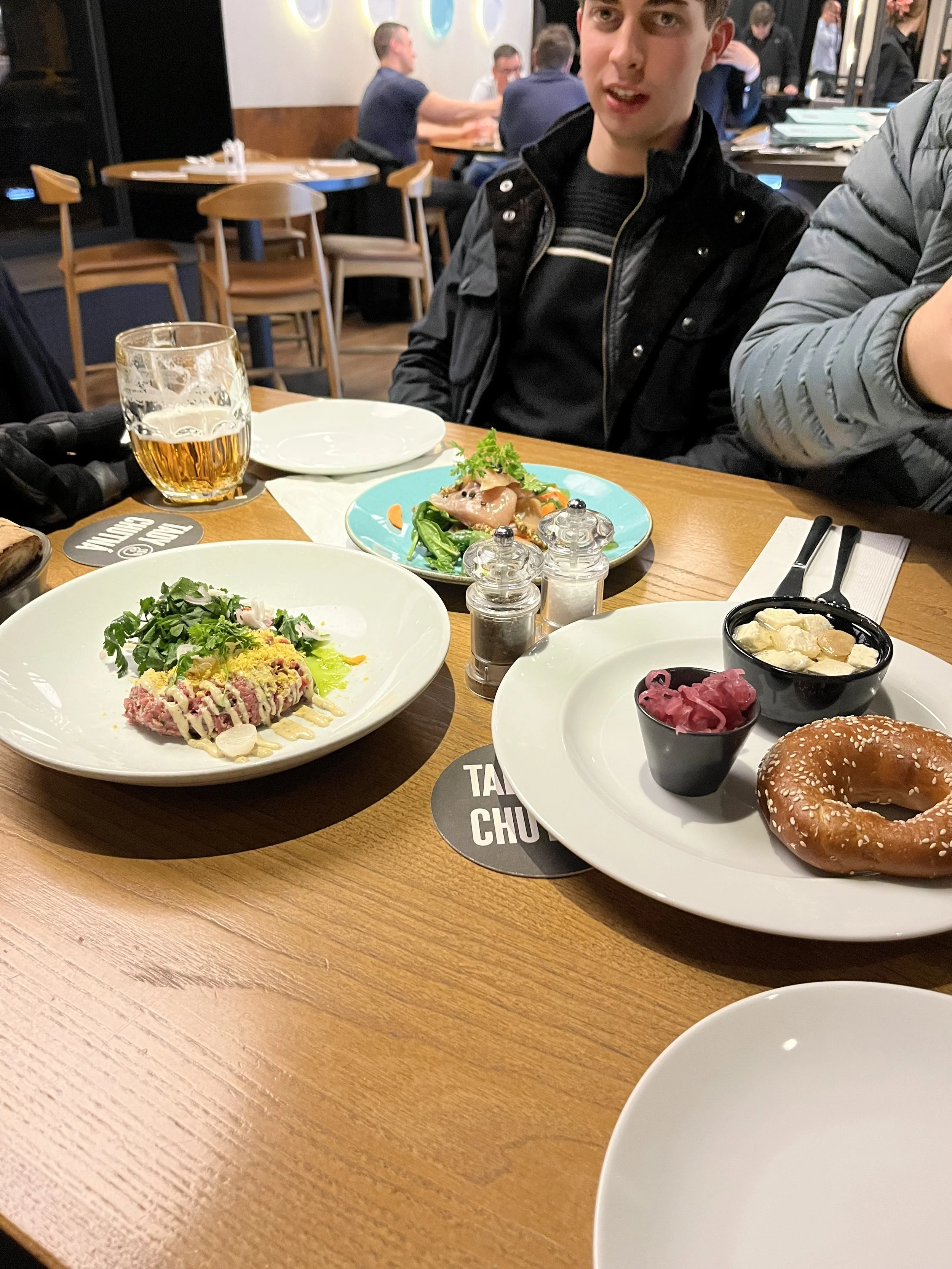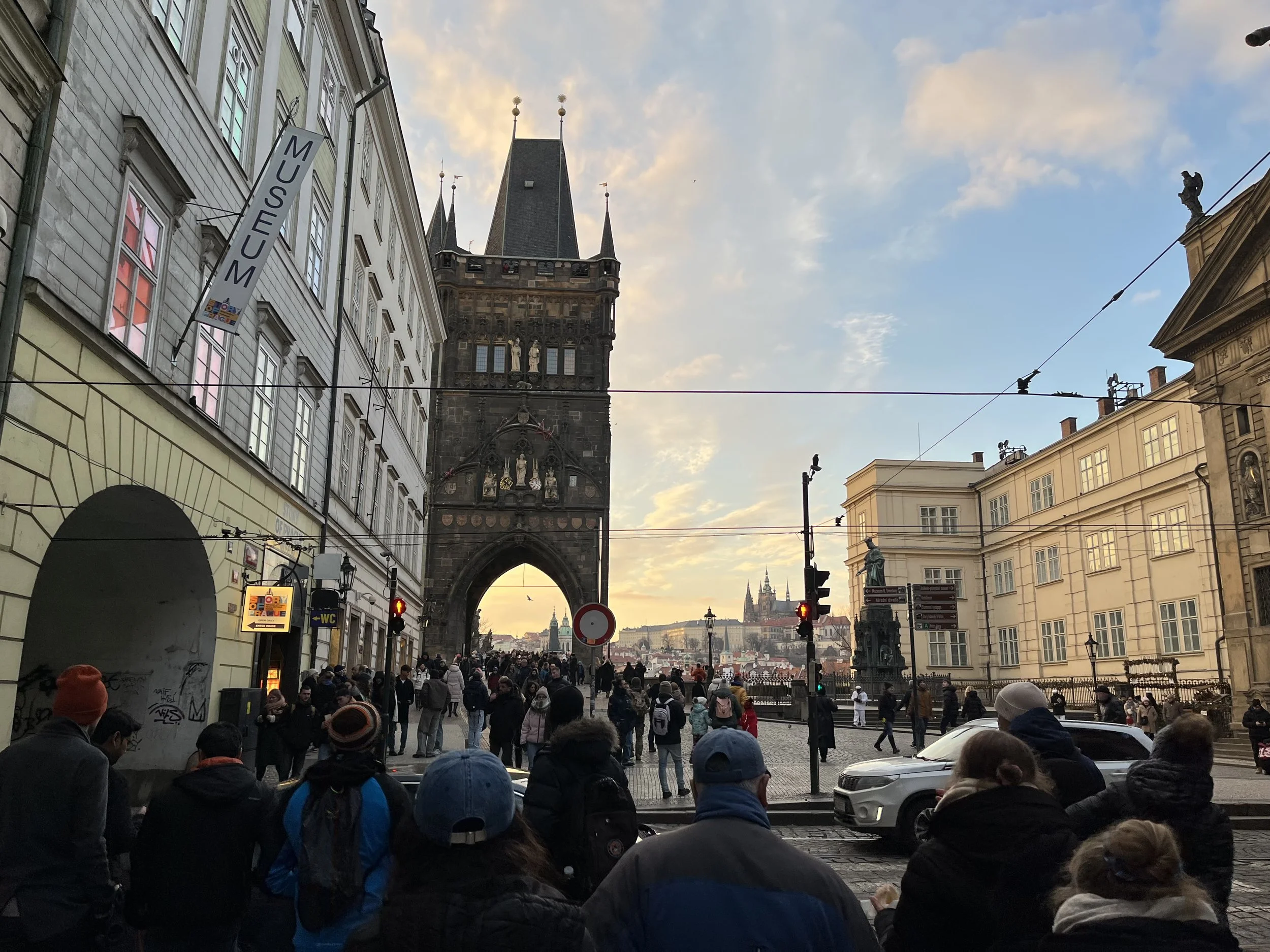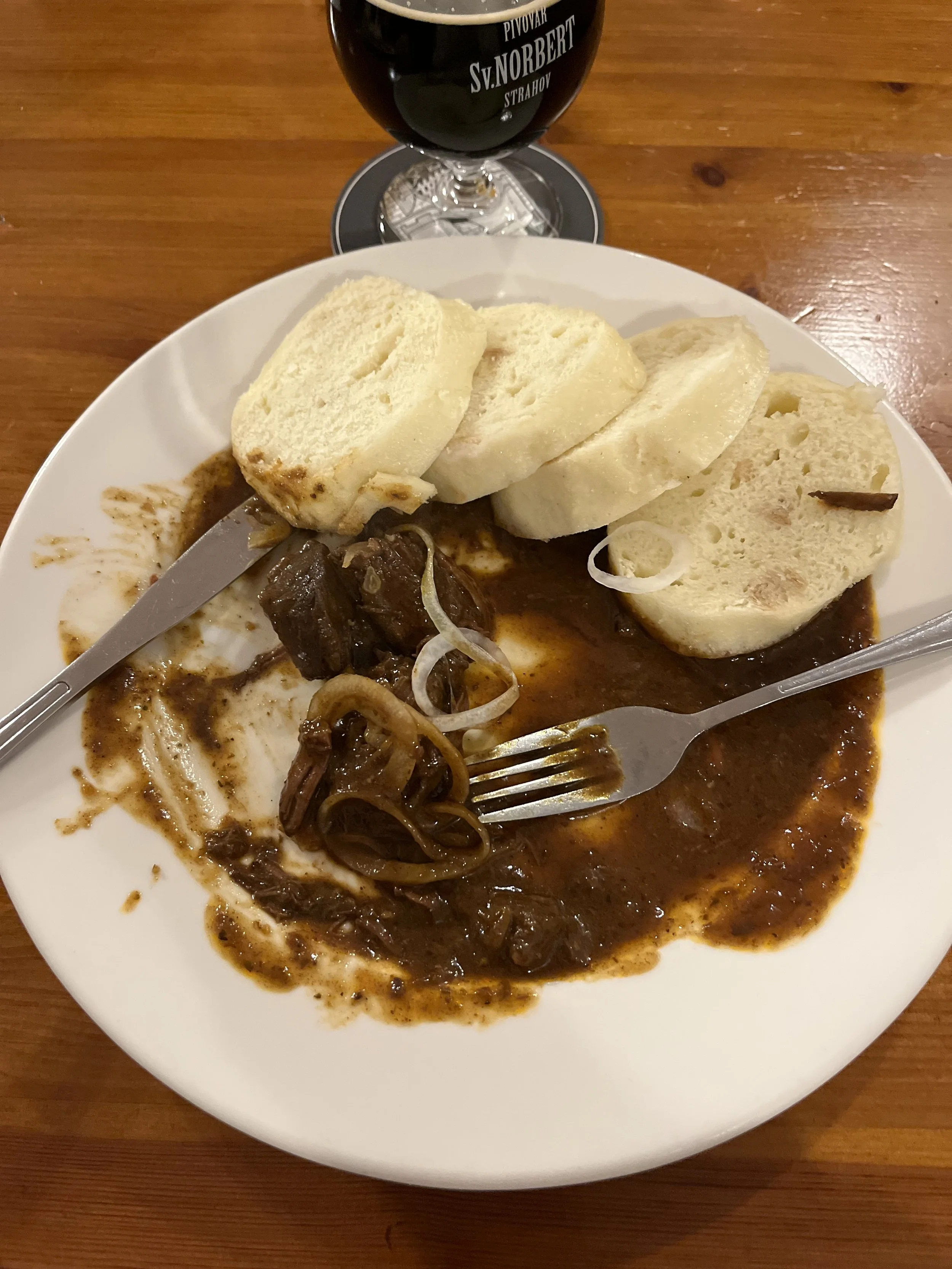Adjusting to Abroad Lifestyle
I am officially three weeks into my stay abroad in Prague and feel like I have finally adjusted to the culture, timezone, and lifestyle. That being said, it did take a good amount of adapting to the study abroad environment, so I will share my tips on how to make this adjustment as easy as possible.
First off is the jetlag and timezone change. I typically struggle a lot with jetlag, especially with time changes of this length (+9 hours from California). I did some research before travelling and found some tools that proved to be super helpful and put me on track early on. I want to preface that I read the book Why We Sleep by Matthew Walker, which helped me as well learn the science behind sleep and what methods can be taken to optimize sleep quality. He states that to fully adjust to a timezone, it takes one day for every hour difference. For a 9‑hour time change, it realistically took my body's circadian rhythm 9 days to fully adjust to the local time in Prague.
Some ways I helped make that transition easier were as follows. These are methods that cue your body's internal clock to recognize the time change and adjust to it more easily and quickly.
1. Adapt to the lifestyle right when you land. This means eating on the local schedule (whether it be 8 pm or 10 pm), going to the gym or exercising at the times you would normally, and sleeping (hopefully) at normal times. DO NOT NAP the first few days, as this will mess up your sleep schedule even more. Personally, I like to go to the gym or go on a run right when I land, so that I naturally get a little more tired when bedtime comes around.
2. Take natural sleep‑aiding nutrients. Magnesium is known to be a mineral that aids in sleep and helps your body feel tired. The first two weeks, I took this every night 30 minutes before my desired bedtime, and it helped a decent amount. I try not to take melatonin, as it can mess with your natural sleep schedule, but if you need to, it can help to give you some sleep hours in the first few days.
3. Go to an IKEA. Now, if you don’t have an IKEA, no worries; I just mean that you should try to buy some small things for your room that can truly change your sleep quality and duration. First, a pillow and sheets if you don’t have any or are looking to get comfortable sleep. My room came with these things, but the pillow instantly gave me neck pain the next morning, so I went and bought one that suited my sleeping style better. Even this small change can help you sleep better in the first few weeks and the rest of your stay. Next, blackout window curtains. I typically like to wake up with the sun, but if the sunrise is not at the time you are trying to wake up, it can really mess with your sleep. The sun currently rises in Prague at 7:00 am, which means that with my bedtime of 12–12:30 am on weeknights, I don’t get the desired 8 hours of sleep before school if I wake up to the sun. My current curtains also are not helping in blocking the sun, which ruined my sleep the first few nights. If you are a semi‑light sleeper, I would highly recommend upgrading your curtains if they don’t do the best job.
4. Get sunlight. From the previous tip, I am recommending removing the sun, but with the blackout curtains, I immediately open them once I wake up. This is because sunlight is one of the most important indicators to our bodies of when to set our sleep cycle. It is recommended that you get 15 minutes of direct sunlight within the first hour of being awake to cue your body on when to set your circadian rhythm. I would wake up to the sun or open my shades immediately and try to walk outside within the first hour, which was easier to do when I had a morning 9 am class the first two weeks.
These are a few of the things I did to help adjust to the local timezone change that truly helped me in the first few weeks. I would also say that you should not be overly strict with your schedule, as there is so much to do within the first few weeks. Realistically, I was getting 3–4 hours of sleep some nights and going to bed at 3:00 am on other nights, but these few tips do help even with this lifestyle. In the end, try to enjoy the first few weeks as much as possible while optimizing your sleep on the days you are able to. I will say that I am someone who doesn’t function well on limited sleep, although that has seemed to change a little while abroad, but sleep does have a direct impact on health, so keep that in mind. If you consistently get minimal sleep (4–6 hours or less) for a prolonged period, you will no doubt get sick, especially with all the other lifestyle changes that you experience while abroad. I have been taking some multivitamins to help minimize the risk of getting sick, along with these immunity ginger and Vitamin C shots I have found at a local supermarket. Luckily, I have still avoided sickness and plan to keep it that way for the rest of my time here. If you ever have questions about my experience or what it's like to study abroad in Prague, you can reach out directly through my travel account @destinationdriftersofficial on Instagram. I regularly post study abroad tips, experiences, and updates, so if you ever have any study abroad questions, that’s where you can have them answered.






